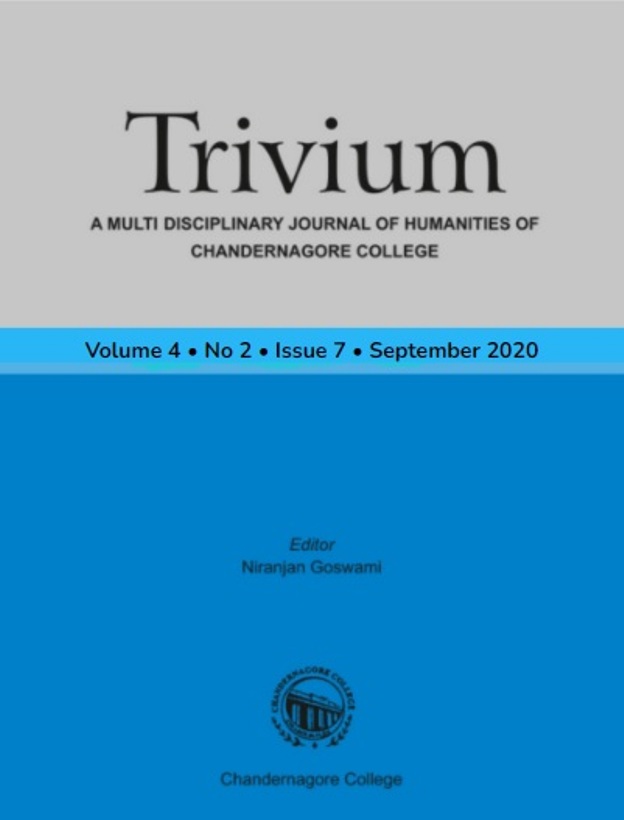Trivium : Vol - 4 : No - 2 : Issue - 7
The present issue is a melange of essays expressing literary and social
concerns. Sangeetha Puthidayeth discusses the writings of two Twentiethcentury
women writers Charlotte Perkins Gilman, the American novelist
and Lalithambika Antharjanam of India writing in Malayalam. In their
novels the two writers have given expression to bodily and psychological
issues of female subjects by which they reclaim the rights of women over
their bodies. Arnab Mandal focuses on the Bengali writers of the “Hungry
Generation” going against the trend of comparing them to the Beat
Generation in America. Mandal, on the other hand attempts to situate them
in their socio-historical context. Debasis Mahapatra raises the multifarious
issues related to the Management of the India-Bangladesh border in his
essay which finally comes up with some suggestions and
recommendations. Abhigyan Guha's paper attempts an assessment of the
Geo-political trends of the global order in the context of the pandemic with
particular emphasis on India and her South-Asian neighbourhood.
Sanghamitra Chanda, on the other hand discusses the issue of trafficking of
women and children with focus on the trauma created by displacement and
the cure of such traumatic effects on the victims. Surajit Senapati also
raises the issue of oppression of women, focusing particularly on the
situation of Dalit women, arguing that these women, becoming more and
more visible, are marking their space in the Indian Feminist movement.
Tumpa Das argues in a paper on the novel Megher Nadi by the Modern
Bengali novelist Abhijit Sen that the work demonstrates the effect of
corruption on an idealist tribal leader, who not only loses his idealism but
also ends up himself as a victim.
Readers can find front matter and back matters of the issue by clicking respective buttons:









